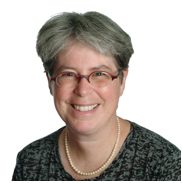Faculty, Students Invited to Workshops on Contemplative Pedagogy Feb. 19

How do faculty help students, and themselves, thread a path through an ever-growing body of information? What practices can faculty and students find that enable them to bring a clear and sustained focus to their work in the classroom and the laboratory?
Through two workshops and discussions, held Feb. 19, participants can consider how one might approach teaching from a contemplative perspective, in both the long and short term. Faculty and students will experiment with the adaptation of several traditional contemplative practices to classroom situations including “stilling” (breath and body awareness), contemplative writing, “beholding,” and explore how these might be instantiated in a classroom, laboratory or personal practice.

Michelle Francl, professor of chemistry on the Clowes Fund for Science and Public Policy at Bryn Mawr College, will lead the workshops along with Wesleyan faculty and staff. Francl is a quantum chemist who has published in areas ranging from the development of methods for computational chemistry to the structures of topologically intriguing molecules. She takes a contemplative approach to both, introducing students to practices to help them find stillness and focus, including contemplative writing, and feels strongly that a pedagogical stance that recognizes the role contemplation plays in research and writing — scientific or otherwise — has the potential to deepen students engagement in their work.
“Studies show that contemplative pedagogy – a teaching method to integrate secular meditation and mindfulness into the classroom – can help improve cognitive and academic performance,” said Janice Naegele, director of the Center for Faculty Career Development, professor of biology, professor of neuroscience and behavior. “Even just five minutes of quiet focus at the beginning of a class can decrease student distraction and foster creativity, empathy, compassion, interpersonal skills and self-awareness.”
Students, she said, report that mindfulness training aids attention, improves concentration, reduces stress, and helps them access self-knowledge. And faculty find that contemplative pedagogy fosters their connection to students and rejuvenates their creative engagement with teaching and research.
The first event, a teaching workshop titled “Practically impractical: Contemplative practices in the classroom” will be held from 10 a.m. to 11:30 a.m. in Allbritton, room 311. The workshop is open to all STEM faculty (Science + Technology + Engineering + Mathematics), postdocs and graduate students.
An Academic (Technology) Roundtable luncheon titled “Using Contemplative Pedagogy in the Classroom” will follow the teaching workshop from noon to 1 p.m. also in room 311. Francl, Mary Jane Rubenstein, chair and associate professor of religion, associate professor of feminist, gender and sexuality studies, will lead the discussion on ways faculty are using contemplative pedagogy practices to engage students. This luncheon is open to all faculty and staff.
The teaching workshop is sponsored by the Center for Faculty Career Development. To RSVP for the workshops and/or lunch to CFCD@wesleyan.edu.
Francl also will lead a student-centered workshop and dinner from 6 to 8 p.m. in the Downey House Lounge. Francl, who is a dedicated person of faith, will speak about her life and experience balancing her religious and professional identities. She will discuss her own spiritual practices and how she tries to negotiate the subtle edge of things between science and religion, faith and reason, and living in a culture that is ok with being spiritual, but far less with being religious.
Tracy Mehr Muska, university Protestant chaplain, and Rabbi David Teva, director of religious and spiritual life and university Jewish chaplain, will host the event. All students of faith are invited to join the conversation. RSVP on Facebook or email Rev. Merh Muska at tmehrmuska@wesleyan.edu.
The student workshop is sponsored by the CFCD, the Department of Chemistry and the Office of Religious and Spiritual Life.

